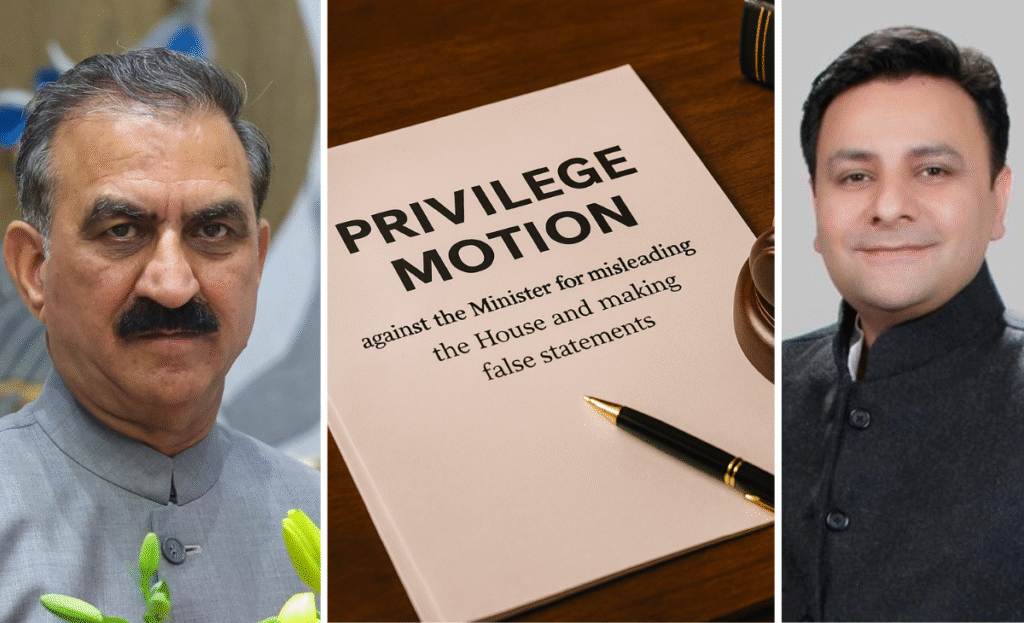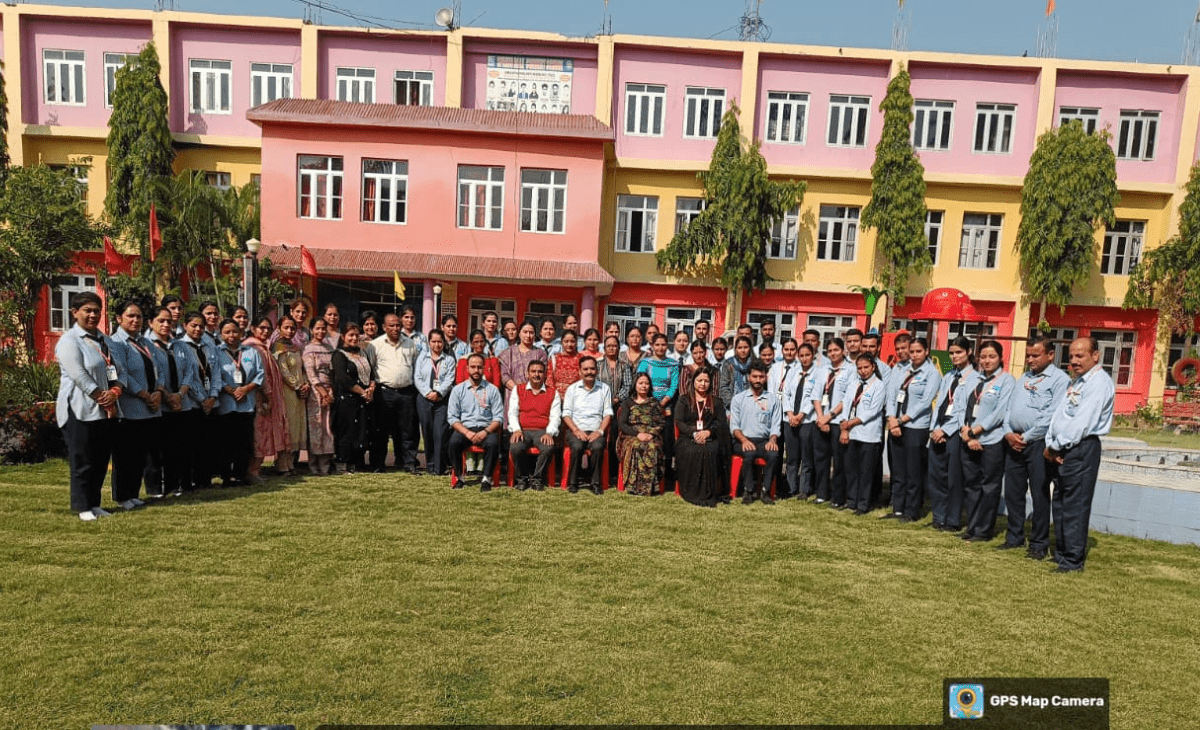S Gopal Puri
Shimla: In a rare legislative development, a privilege motion targeting a sitting Chief Minister has stirred attention in the Himachal Pradesh Assembly.
Congress-turned-BJP MLA from Dharamshala Sudhir Sharma filed the notice accusing Chief Minister Sukhvinder Singh Sukhu of misleading the House, raising questions about whether such a course is permissible under the Assembly rules.
Under the Rules of Procedure of the Himachal Pradesh Vidhan Sabha, any member, regardless of affiliation, can move a privilege motion against another member if there is a breach of privilege or significant misleading of the House. The Speaker acts as the arbiter, first determining the admissibility of the motion.

In this case, Sudhir Sharma filed the motion citing alleged discrepancies in the CM’s statements regarding employment figures, infrastructure promises (like Adarsh Health Institutes and PET scan facilities) and rain devastation relief schemes. The Speaker confirmed receipt of the notice and noted that the matter would undergo “serious scrutiny”, warning that frivolous notices could be rejected.
However, procedural missteps can derail even a justified motion. The Speaker has full discretion to reject motions that fail to follow procedural mandates. Earlier this week, a similar privilege notice by Sudhir Sharma was rejected due to submission of a DO note that lacked proper reference to relevant rules, highlighting the importance of precise compliance.
While the occurrence remains rare, it is not unprecedented in Himachal’s legislative history. In 2014, the entire opposition had tabled a breach of privilege notice against then CM Virbhadra Singh over derogatory remarks against BJP legislators. The case illustrates that privilege motions against Chief Ministers are constitutionally and procedurally feasible when warranted by circumstances.
Key takeaways:
- Yes, an opposition MLA can move a privilege motion against the Chief Minister, provided procedural rules are properly followed.
- The Speaker has exclusive authority to assess the admissibility and further processing of such motions.
- Legal precedence and Assembly rules validate the move, but compliance is essential; errors in format or reference can result in rejection.
- Historical instances reinforce that such motions — though rare — are constitutionally recognised in Himachal’s parliamentary practices.






